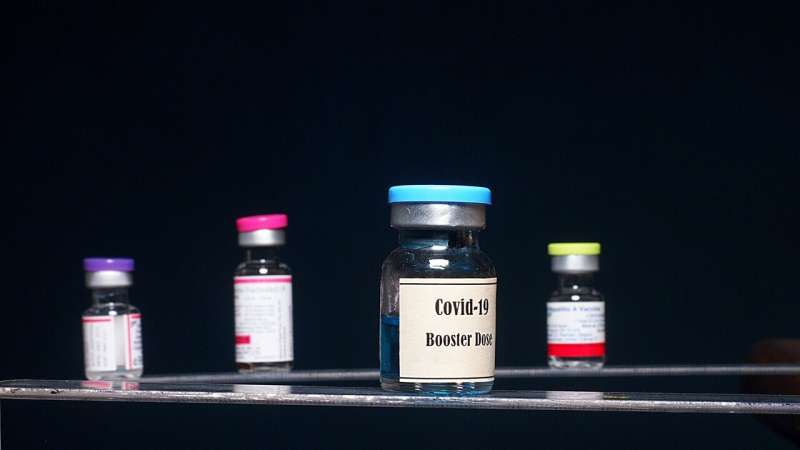This article has been reviewed according to Science X's editorial process and policies. Editors have highlighted the following attributes while ensuring the content's credibility:
fact-checked
peer-reviewed publication
trusted source
proofread
Mathematical model predicts long-term effectiveness of COVID-19 vaccine booster doses in different patient populations

Researchers have designed a mathematical model that can predict the course of vaccine-induced immunity against COVID-19 in different patient populations—including otherwise healthy individuals and those who have cancer or suppressed immune responses—over the long term.
The model, which was developed by a team led by investigators at Massachusetts General Hospital (MGH), a founding member of the Mass General Brigham healthcare system, in collaboration with scientists at the University of Cyprus, also makes predictions under potential future scenarios (such as the emergence of SARS-CoV-2 variants with greater immune evasion) and reveals the benefits of the new bivalent vaccines.
The model builds on the investigators' previously developed mathematical framework that they used to understand why treatment responses vary widely among people with COVID-19 and to identify biological markers related to these different responses, published in PNAS in 2021.
In this latest work, which is also published in PNAS, the scientists addressed the need for predictions of vaccine effectiveness over time.
"We used this model to simulate how differences in viral, patient, and vaccine characteristics may affect COVID-19 outcomes," says senior author Rakesh K. Jain, Ph.D., director of the E.L. Steele Laboratories for Tumor Biology at MGH and the Andrew Werk Cook Professor of Radiation Oncology at Harvard Medical School.
For example, the model incorporates different variants of SARS-CoV-2 (including hypothetical ones), original and bivalent forms of the vaccine, and different considerations for certain patients—such as interactions between the virus, immune cells, and tumor cells in individuals with cancer.
The model predicted that a booster dose of either the Pfizer-BioNTech or Moderna mRNA vaccines can induce robustly enhanced antibody- and immune cell–based responses against SARS-CoV-2 to provide sufficient protection for more than 1 year in healthy individuals.
However, the model suggested that for people with suppressed immune responses or those with cancer receiving immunosuppressive treatments, the booster effect may wane fairly quickly. These patients should therefore be given booster vaccines on a more frequent basis.
For people receiving the Johnson & Johnson/Janssen vector vaccine, additional booster doses should be considered for everyone. The analysis also revealed that the optimal schedule for vaccine booster doses is not the same for all SARS-CoV-2 variants.
"Our results could help inform the timing of booster vaccinations in individuals with different characteristics and comorbidities, as well as for novel viral variants," says Jain.
"As we approach an endemic phase of SARS-CoV-2, a rational approach to vaccine booster utilization may help ensure equitable access to vaccines and help prevent further outbreaks and development of new variants."
Co-corresponding authors are Lance L. Munn, MGH, and Triantafyllos Stylianopoulos, University of Cyprus. Other MGH authors are Chrysovalantis Voutouri, C. Corey Hardin, Vivek Naranbhai, Mohammad R. Nikmaneshi, Melin J. Khandekar, and Justin F. Gainor.
More information: Voutouri, Chrysovalantis et al, Mechanistic model for booster doses effectiveness in healthy, cancer, and immunosuppressed patients infected with SARS-CoV-2, Proceedings of the National Academy of Sciences (2023). DOI: 10.1073/pnas.2211132120. doi.org/10.1073/pnas.2211132120




















